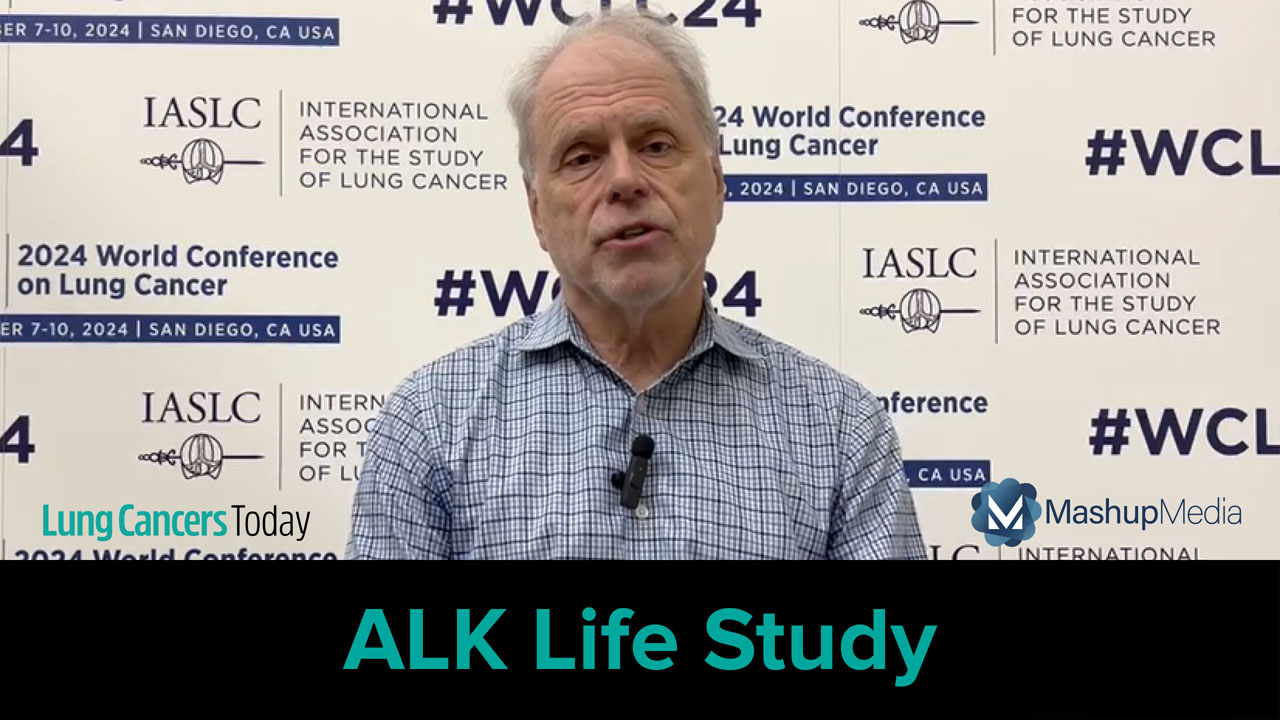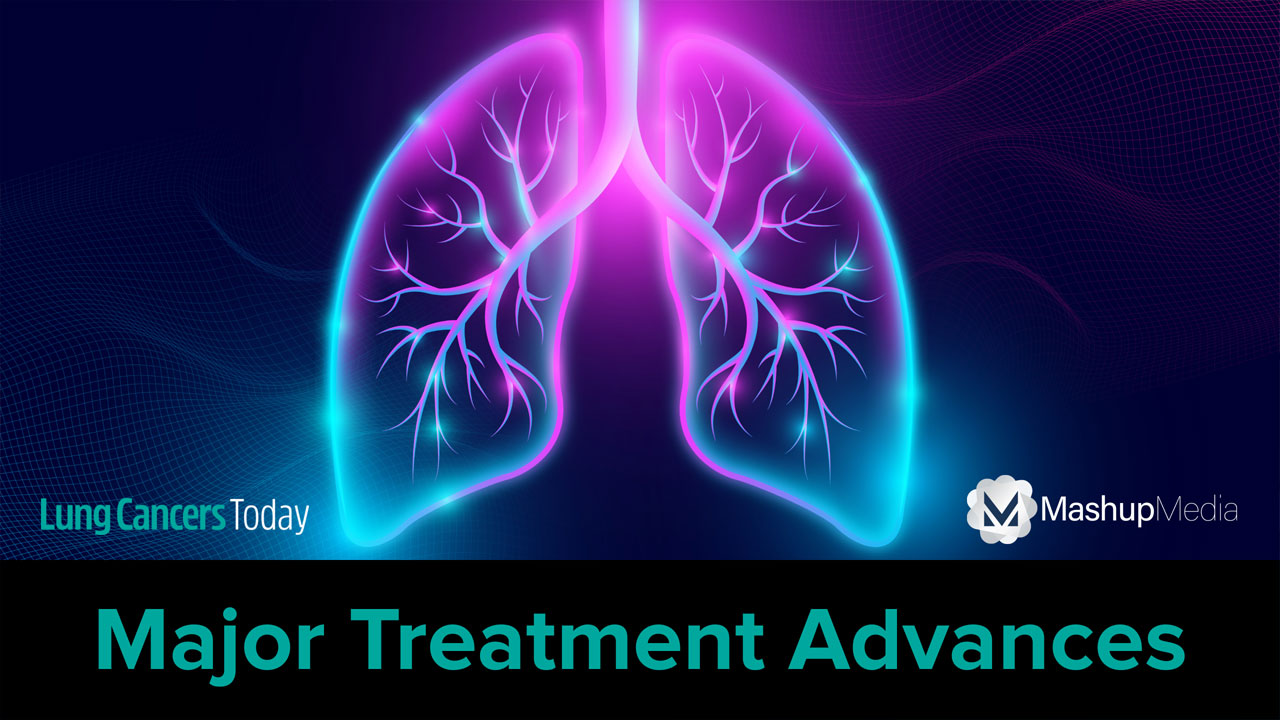
ALK+ NSCLC
Advertisement
Dr. Shaw is being recognized for her "groundbreaking work in defining ALK- and ROS1-positive lung cancers," officials said.
The long-term follow-up data shows that PFS remains unreached in the subgroup of Asian patients in the CROWN study.
The 12-member board will guide the guide the patient-driven organization’s research and strategic priorities.
The phase 2 trial included patients who had advanced or metastatic NSCLC with actionable genomic alterations.
Shirish M. Gadgeel, MD, discusses the phase 1/2 ARROS-1 and ALKOVE-1 studies presented at the ESMO 2024 Congress.
The foundation's 2024 Scientific Grant Program awards mark the "largest single-year investment in its history.”
The efficacy of ensartinib was evaluated in eXALT3, an open-label, randomized, active-controlled, multicenter trial.
Ken Culver, MD, Director of Research and Clinical Affairs at ALK Positive, discusses the on-going ALK Life Study.
Dr. Paz-Ares shares his insights on recent studies and highlights practice-changing data in lung cancer.
Researchers assessed patients' functional health and well-being across multiple physical and mental domains.
The median PFS of patients receiving lorlatinib in the phase 3 CROWN study has yet to be reached with 5 years of follow-up.
The approval is based on results from the phase 3 ALINA study.
Cancer organoid-based drug sensitivity tests have recently been investigated to predict responses to anticancer drugs.
Worse clinical outcomes and higher risk for brain metastasis are more likely to happen in patients with metastatic NSCLC.
Results of a study that evaluated the impact of comprehensive versus limited NGS for advanced NSCLC.
Patients of Hispanic/Latino ethnicity have a greater prevalence of certain lung cancer driver mutations.
Early treatment with the anaplastic lymphoma kinase (ALK)-inhibitor lorlatinib reduced cancer progression and death in ...
The U.S. Food and Drug Administration approved lorlatinib for patients with ALK-positive metastatic non-small cell ...
Advertisement




















 © 2025 Mashup Media, LLC, a Formedics Property. All Rights Reserved.
© 2025 Mashup Media, LLC, a Formedics Property. All Rights Reserved.